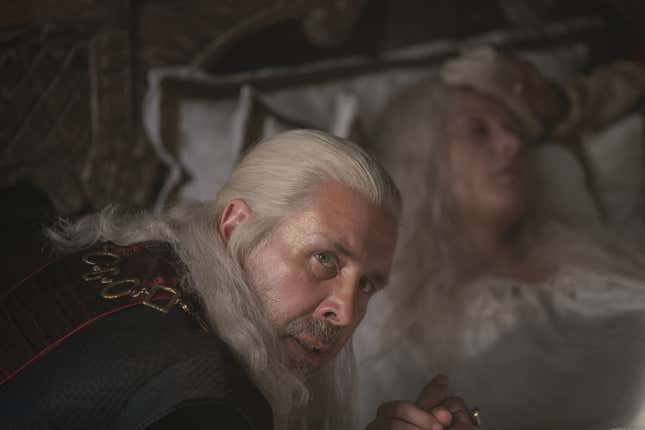‘House of the Dragon’ Doubles Down on Gory Forced Birth Scene: ‘We Showed as Many Women as Possible’
Showrunner Miguel Sapochnik claims women who previewed the scene wanted it "to be more [violent]." Cool!
Entertainment

If you were uncomfortable with or disgusted by the violent forced birth scene in the season one premiere of House of the Dragon on Sunday, you might be the problem.
In a roundtable interview with Insider published Monday, co-showrunner Miguel Sapochnik justified the scene’s brutality by claiming they “[made] a point of showing it to as many women as possible and asked the very question: ‘Was this too violent for you?’” Apparently, per Sapochnik, “Unanimously, the response was ‘no.’ Often the response was ‘If anything, it needs to be more.’” Sapochnik explained his own reasoning for advocating that the scene be as “horribly real” as possible (without being “excessive”): “We shouldn’t be shying away from this thing that’s happened because it’s raising a point that seems to hit a real trigger for women, which is this idea of choice.”
In case you weren’t among the 10 million who tuned in for House of the Dragon’s premiere, the show follows the early years of the Targaryen dynasty 200 years before the events of Game of Thrones. The current king, Viserys, hopes his pregnant wife Aemma will birth his long-awaited male heir. But when the delivery is afflicted with complications and Viserys must choose between saving Aemma’s life or the male baby’s, he chooses his son, ordering nurses to restrain his wife as they cut her open to “save” the baby that will die the next day. Throughout, Aemma is screaming in pain and horror as she ultimately bleeds to death.
-

-

-

-

-

-

-

-

-

-

-

-

-

-

-

-

-

-

-

-

-

-

-

-

-

-

-

-

-

-

-

-

-

-

-

-

-

-

-

-








































